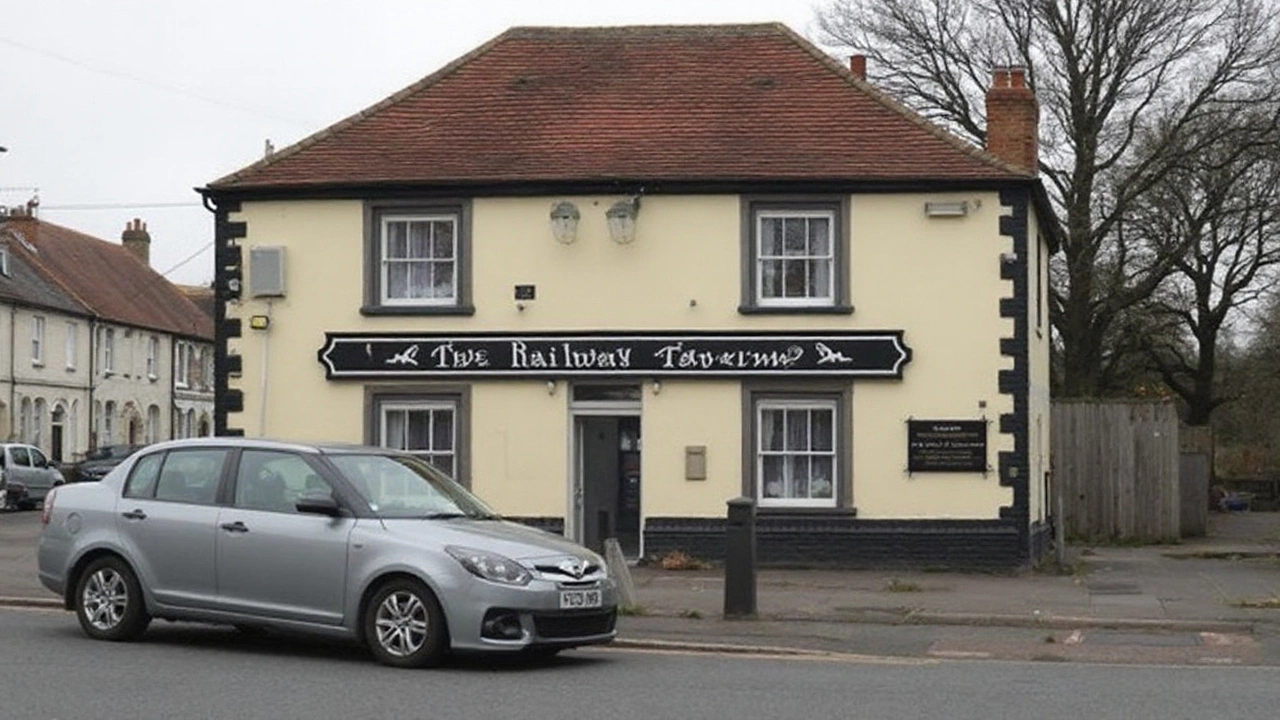From opening misfire to momentum
Two words I didn’t expect to write about Jeremy Clarkson’s latest side hustle: it works. The Clarkson's Farm pub in Asthall, trading as The Farmer’s Dog, has gone from an opening that looked like a warning to celebrities everywhere to a steady, confident operation drawing locals and day-trippers for the right reasons.
When it opened, the story was simple and messy. Queues formed before lunch. Food ran out. Service buckled. The car park overflowed into village life, and the council stepped in with temporary speed limits to calm the traffic squeeze. Early visitors called it chaotic and, in the harsher takes, a cash grab with a famous name over the door.
That version of the pub is gone. The Farmer’s Dog has built structure into the experience. A booking system now prevents the long, shapeless waits that defined the first weeks. Staff look trained and prepared rather than overwhelmed. The kitchen, once swamped, is getting plates out on time and keeping popular items in stock.
It helps that this isn’t a theme park for petrolheads. You won’t find Top Gear-style gags on the walls or a car museum vibe out back. The car park reads more school run than supercar meet, and that seems intentional. The pitch now is a proper country pub in a postcard village near Burford, with a menu that reads British and a beer garden that makes strangers pull out their phones.
There’s a wider backstory, too. Clarkson’s farm projects have sparked planning rows before, especially over building a restaurant on the farm. Asthall is a different setting and a different playbook. Here, the village has warmed to the place, in part because it’s creating jobs and directing money to local suppliers. You can see the join between the TV show’s food-and-farming message and what lands on the plate.

What it’s like now: menu, sourcing, and the feel of the place
The headline policy is blunt: if it isn’t British, it isn’t on. No Coca‑Cola, no ketchup, because those aren’t made in the UK. That will rankle some families, but it’s a clear stance, and it forces the kitchen to think. House sauces and British soft drinks stand in for the usual global brands. The result is a menu that backs up the shop-local talk rather than just nodding to it.
It’s also a lovely spot to actually sit and eat. The beer garden opens onto rolling Cotswolds countryside that looks like someone ironed the hills and painted the sky. It’s the kind of view tourist boards dream about, and it does a lot of the heavy lifting on sunny days. Outside tables spread the load and keep noise levels down. Inside, the room is comfortable but warm in peak summer—there’s no air conditioning—so the garden becomes the prime real estate when the weather turns up.
Food-wise, visitors keep circling back to one dish in particular: the steak pie. It’s the kind of British pub staple that separates try-hard menus from real ones. Desserts stick to the brief, too—Eton Mess and a Rhubarb Crumble cake have been getting nods. None of this reinvents the wheel, and that’s the point. The kitchen is cooking the hits, sourcing close to home, and not trying to outsmart the brief.
- Steak pie that earns the repeat orders
- Eton Mess done the familiar way, with a tidy finish
- Rhubarb Crumble cake for those who want the comfort route
- Hawkstone pours—lager and Hedgerow Cider—plus take-home options
The drinks list doubles as a brand statement. Hawkstone, the beer and cider label tied to the Clarkson universe, is everywhere: crisp lagers, the Hedgerow Cider, and giftable bottles to take away. It’s smart vertical branding that also makes sense behind the bar. Alongside the pours, there are pork pies and sausage rolls ready for the road—good business for walkers and anyone breaking up a Cotswolds drive.
Service, once the weak link, now feels like the story. Front-of-house teams greet, seat, and keep an eye on the pacing. Plates land without drama. Bills arrive without hunting for a staffer. The difference between a muddled launch and a functioning pub usually comes down to training, prep, and a manager with eyes on the room. The Farmer’s Dog has that now. You can sense the systems in place even if you can’t see them.
On price, it sits where you’d expect for this part of the world: not a bargain, not a gouge. The Cotswolds is one of Britain’s most touristed rural areas, and menus across the region tend to reflect that. Here, the value calculation makes sense because the basics are in line—the food is consistent, the service works, and the setting is special enough to feel like a day out even if you live nearby.
The crowds are broader than the marketing caricature. Yes, fans of Clarkson’s Farm make the trip. But the tables hold families, couples who have been walking the river, locals grabbing a midweek lunch, and day-trippers who found the place while planning a countryside loop. That breadth is a good sign; it means the draw isn’t just a TV tie-in.
Locally, the pub has turned what could have been a sore point into a working relationship. Instead of another round of planning fights, the village has gained a busy business that hires staff and pays suppliers, even if some extra hands are drafted from external catering firms. That’s a normal mix in rural hospitality, where seasonal peaks are heavy and shifts can be unpredictable.
Is everything perfect? Not quite. The no-ketchup, no-Coke line will always divide opinion. On hot days, the lack of air conditioning inside is noticeable. And if you turn up without a booking at peak times, especially weekends, you can still end up waiting. But those aren’t fatal flaws; they’re honest trade-offs in a place that has figured out its priorities.
Practicalities are simple: book ahead, especially on weekends and school holidays. Aim for the garden in good weather. If you’re driving, expect normal pub parking rather than an overflow field—traffic management that was needed in the early days has calmed as the operation settled. If you’re expecting a shrine to The Grand Tour, manage that expectation. You’re here for a country pub, not a museum.
There’s also a bigger point tucked into the menu. This pub is a live test of the TV narrative: can you build a viable hospitality business by buying British, keeping the menu grounded, and saying no to global brands? Early chaos aside, the current answer looks like yes. The kitchen isn’t chasing trends. The bar is selling what it pours on screen. The garden does the quiet, persuasive work of reminding you why people come to the Cotswolds in the first place.
Celebrity venues often lean on selfie moments and merch. The Farmer’s Dog has gone another way, almost underselling the Clarkson connection in the room while doubling down on British sourcing and a clear, tight offer. That restraint, matched with basic operational discipline, is what turned the story around. If the opening was noise, the pub today is signal: a country spot that learned fast, fixed the cracks, and now plays to its strengths.






